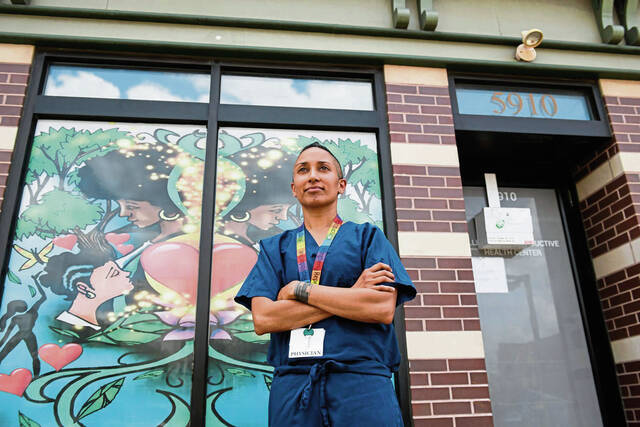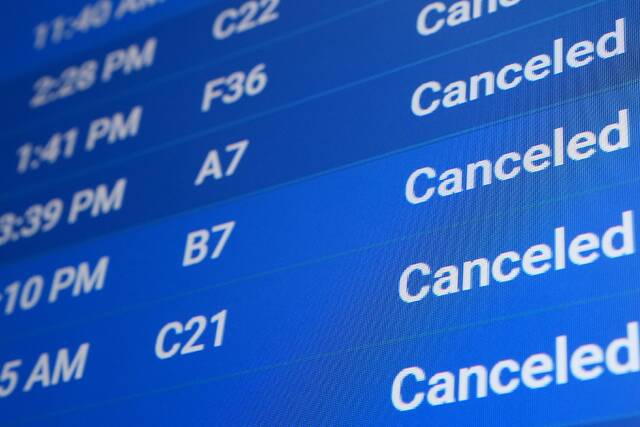Pennsylvania has become a battleground for educational freedom and choice. Parents from diverse perspectives are showing up at school board meetings, filing lawsuits, forming political action committees and running for their school boards. Many have reached a boiling point with systemic inequities and curriculums that often feel more like activism than literacy.
Parts of our public school system have been dysfunctional for a long time, but the covid-19 shutdowns exposed weaknesses we already knew and revealed some even worse, intensifying the urgency to give parents more choices and control in education.
Statewide, students had wildly different pandemic experiences. While some schools stayed open, others went virtual. We had kindergartners struggling with masks in school, grade school kids trying to learn using cellphones because there was no computer at home and even some high schoolers dropping out of school entirely to help support their families.
The tragic aftermath of these seemingly endless education disparities speaks for itself.
According to state assessments, 78% of Pennsylvania eighth-graders have fallen behind in math, and nearly half are not proficient in language arts. Pandemic learning loss hit low-income and minority students the hardest, and educators see a widening gap due to social and emotional issues in students after months of isolation and school closures.
We are in a moment of urgency. A one-size solution will not fix our educational system’s underlying chronic failures — much less close the pandemic learning gap. Pennsylvania should give students the freedom to pursue the school best suited for their individual needs and talents.
Lawmakers in Harrisburg recognize the importance of educational choice. They are working toward enacting the Lifeline Scholarship Program (House Bill 2169), which offers an Education Opportunity Account (EOA) to students assigned to — but want to leave — a public school district performing in the bottom 15% of state metrics.
With EOAs, education funding dollars follow the child, not the school, and parents gain the flexibility to meet their child’s academic needs and change schools if necessary. Much like a 529 savings plan, families have access to restricted-use funds for approved expenses such as tuition, technology for online classes, books, tutoring, uniforms and therapies for students with special needs.
Each qualifying student would receive a modest scholarship of around $6,800 — the average Pennsylvania spends in state dollars on each student right now minus transportation. Lifeline Scholarships would not impact the state budget since this is not new spending. Instead, the money would come from existing subsidies, and importantly, all school districts would continue to keep all local and federal education funding dollars.
As a former lawmaker, I know from experience that it’s rare to find a way that immediately improves a program and saves taxpayer dollars, all while minimizing disruption for people who like where they are.
This is what Lifeline Scholarships accomplish for education. They put parents in the driver’s seat of their children’s education, rather than the accidents of geography, lotteries, waiting lists, or school board votes. They give families options to stay and a lifeline to leave — a lifeline to succeed.
There is more demand than ever for flexible education options. According to a recent poll from the Commonwealth Foundation, more than eight in ten Pennsylvania voters support policies expanding educational opportunities, like the Lifeline Scholarship Program. This support extends to tax credit scholarships as well, which allow businesses to donate to nonprofit scholarships for low-income and middle-income children to attend prekindergarten or a K-12 private school.
The demand for more choices in education is not unique to Pennsylvania. A 2022 national poll revealed overwhelming bipartisan support for school choice and policies helping children escape low-performing schools — where proficiency levels in math and English often drop into the single digits.
Nationwide, 83% of Republicans and 76% of Democrats support giving families EOAs to use for their child’s school expenses. Try to find another issue with this much bipartisan support in today’s hyperpartisan political climate.
The Lifeline Scholarship Program passed the House in April and has the chance to turn life around for thousands of students across the state. Now, it’s up to the Senate and governor to decide if Pennsylvania’s most vulnerable students deserve a lifeline.
Stephen Bloom, a former state representative, is vice president of the Commonwealth Foundation. Twitter: @StephenLBloom; @Liberty4pa.








